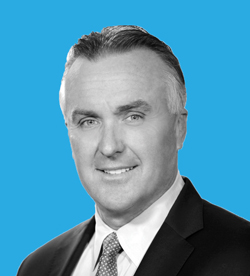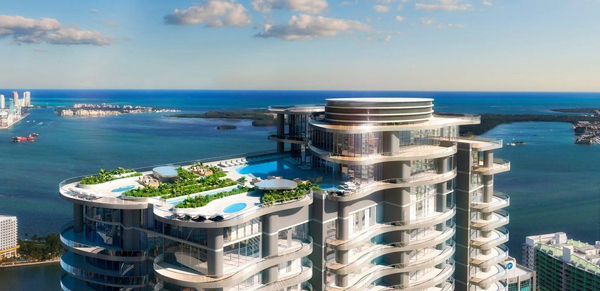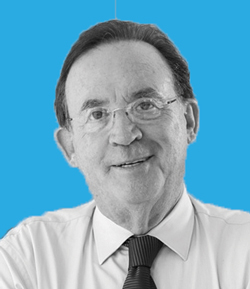Lackluster sales meetings, a dwindling number of closings, restless developers — it’s not pretty, but those are the conditions at a number of new condo projects in South Florida these days.
As the pace of construction of new units exceeds the rate of sales at new condo developments, the pressure is on now more than ever for Miami’s top sales and marketing firms.
In the public eye, executives from firms like Douglas Elliman, One Sotheby’s International Realty and Fortune International Group are generally gracious and admiring of their colleagues. But behind closed doors, they are constantly competing against their brokerage brethren for new projects, and sometimes those projects already have sales teams.
“We’re going to bid on every project we can,” Douglas Elliman Florida CEO Jay Parker said, though he added that while he is quick to bid, he doesn’t approach developers with projects that have another brokerage in place.
Playing aggressive offense is only half the battle. Brokerages have to work harder than ever to keep their developments, too, brokers said.
“With a slow market like this, the only way to keep the project is to increase the value of the services you offer the client,” said Craig Studnicky, co-founder and principal of Aventura-based brokerage International Sales Group. “It’s time to squeeze the bat … The few buyers that are out there are premium for every development.”
Providing that additional value, he said, “is the only way I can effectively compete right now. I’ve got to work much harder to make that kind of sale.”
The developers rumored to be looking to shake up their sales strategy by bringing in a new team include Joseph Kavana, who’s building the first tower at Metropica in Sunrise, and the team building One Thousand Museum, which consists of Louis Birdman, Gregg Covin, Kevin Venger and the Regalia Group, sources told The Real Deal. Sales at both developments are handled by One Sotheby’s. The developers for both projects said they were not looking for replacements.

Craig Studnicky
Metropica One, a 263-unit, 28-story tower at 1800 Northwest 136th Avenue in western Broward County, is about 65 percent sold, Kavana said. He launched sales with One Sotheby’s in 2014 and hit 60 percent sold in April, when he secured construction financing for the building, a spokesperson confirmed. That means only 13 units sold over the last eight months. He plans to launch sales of the second of eight residential towers once Metropica One reaches 75 percent.
While there have been whispers before that he’s looking to change brokerages, Kavana insisted it was baseless chatter, saying he’s not pursuing other companies to take over sales from One Sotheby’s. “You evaluate what makes sense, and right now it makes sense for us to stay with One Sotheby’s,” he said, adding that being pitched by other brokerages is “part of the nature of the business.”
The brokerage declined to comment on the percentage of units sold at One Thousand Museum, saying in a statement that only a handful of smaller units in the high-rise are still available. Sources said the developer was considering replacing One Sotheby’s.
“I think the term ‘losing a project’ is the wrong way to describe what happens, though we can certainly admit we’ve partnered with developers that weren’t the right fit in the past,” Daniel de la Vega, president of One Sotheby’s, said in a statement to TRD when asked about developers switching brokerages. He added that winning projects “in this stage of the real estate cycle is a challenge we welcome.”
Sometimes a parting of ways between development and brokerage is mutual. In late 2016, Shoma Group developer Masoud Shojaee replaced One Sotheby’s with Douglas Elliman for his 11-unit boutique condo project Eleven on Lenox. At the time, he said his friendship with founder and CEO Mayi de la Vega was the only reason he hired the brokerage. The feeling was mutual with de la Vega, who told TRD at the time that “it was not a project that I really, honestly wanted to represent anymore.”
Parker and Douglas Elliman were criticized for taking the project, but Parker believes “everybody else missed the boat.”

Fortune International Group took over sales at Ugo Columbo’s Brickell Flatiron from Cervera Real Estate this year.
Prices at Eleven on Lenox range from about $2.9 million to $4 million, which is expensive for nonwaterfront units. “It’s a hard project to sell because it’s a new category. I think Masoud is an extremely loyal person, and I think One Sotheby’s compromised that loyalty,” Parker said, alleging a lack of effort on their part.
Elliman also just took over sales of 321 at Water’s Edge in Fort Lauderdale from Engel & Völkers Fort Lauderdale.
But Elliman isn’t always on the winning team. In February, the firm lost sales and marketing of the remaining 15 percent of units — about four — at the 26-unit Miami Beach Edition to One Sotheby’s. Parker believes the development was constricted by the nature of the floor plans of the remaining units, and said there were conflicts over how they should be priced.
“We reached a point in time where we weren’t effective, and we weren’t getting the velocity we wanted,” Parker said, adding that it’s “very disappointing to lose a project. You never want to shove anyone’s face in it.”
To protect their sales teams, Elliman and other brokerages include a termination penalty in their contracts so that agents can’t be hired away to represent the same development. “It’s one area in the market where I think we have a little bit of security to make sure we don’t just get dumped,” he said.
On the other end of the spectrum, if an agent or team is experiencing “deal fatigue,” Elliman will recommend an agent swap to avoid getting dumped. Parker said he’s in regular communication with developers and sales teams to make sure both are on the same page.
Still, losing a new development project “could happen to any of us,” Parker said. “In a market like this where there’s so much headwind, developers get antsy.”
And with the increased headwind comes a higher risk of broker burnout. When the principals of brokerages don’t show up to sales meetings and events, “the burnout factor within a sales organization becomes rampant,” ISG’s Studnicky said.
RelatedISG, a joint venture between the Related Group and ISG, has had to take some precautions to avoid the dreaded burnout. It’s been handling sales of the W Fort Lauderdale since New York-based Related Companies purchased the project from the previous developer and relaunched it in 2015. Since then, RelatedISG has sold about 65 units.

Joseph Kavana
“We’re selling the W, thank God. We’re selling one to two units a week,” Studnicky said. “Part of my job is keeping the sales people motivated and appreciated for their work. The brokers and the customers walking into a sales office, they’ll pick up on those vibrations.”
In a bid to drum up sales, Studnicky recently convinced Related Companies to offer a two-year leaseback program to buyers. He hopes the program will give buyers confidence in the development while offering a fresh approach to the sales team.
But the appeal of ushering in a new team can be hard to resist for some developers. A new brokerage brings new agents, fresh energy and enthusiasm for a project that may have gone stale.
Fortune International Group, which has both a brokerage and development arm, took over sales at two big projects this year — OKO Group’s Missoni Baia in Edgewater and Ugo Colombo’s Brickell Flatiron. Cervera Real Estate had handled both since their launches in 2016 and 2014, respectively.
In good markets, it doesn’t typically require that much effort to keep and sell a development, Fortune CEO Edgardo Defortuna said. But now much more is required of him and others at the top. He recently attended real estate fairs in Buenos Aires and Peru and is working on generating more internet-based leads in South America. “We’re all competing for the same customer,” he said. And now that sales take longer, Defortuna said, he’s especially careful about where Fortune spends its marketing dollars.
Whether it’s a new project or one Fortune has been leading sales on for a while, Defortuna is quick to offer some real talk to developers about what sells and what doesn’t. “I’d rather tell them the truth in the beginning,” he said.
At Missoni, Fortune suggested the developer reconfigure the floor plans, bringing down total unit pricing and unit sizes but keeping the average $900 per-square-foot price.
“We have units under $1 million now, and that really created a great new market for us,” he said. Fortune declined to provide an updated sales figure for the Edgewater condo tower.
At Brickell Flatiron, where construction and sales are well underway, Colombo replaced Cervera with Fortune toward the end of the summer. It’s nearly 70 percent sold, according to a spokesperson for the developer.
Potential conflicts — like when brokerages represent multiple developers in a specific market — can be an issue for developers when selecting a sales and marketing firm.
When Swire Properties issued a request for proposals from brokerages in 2013 for luxury condo towers Rise and Reach at Brickell City Centre, five firms entered the bidding, and one — ISG — walked away due to its relationship with Property Markets Group. At the time, ISG was already representing the competition, PMG’s Echo Brickell, a project that was recently completed and nearly sold out.
Similarly, Studnicky said he wouldn’t pitch Turnberry Ocean Club or Jade Signature, since both developments are near PMG’s Muse Residences in Sunny Isles Beach, which ISG is selling. “I wouldn’t even think about it. Now when Muse sells out, different story,” he said.
This year, PMG announced it was partnering with Compass to sell its preconstruction projects in markets like D.C., Los Angeles, Boston and New York, but ISG is still handling sales and marketing of the South Florida developments.
“Everyone’s trying to figure out how to [make sales],” PMG principal Ryan Shear said. But coming off of a “pretty shitty” year, Shear said, PMG is trying to be a little different from its competitors by bringing Compass in on a national level.
With the 780-unit Brickell City Centre, ISG’s competition before it left the pitch process included Fortune International Group, Walter Defortuna’s Fortune International Realty (a subsidiary of Edgardo Defortuna’s firm), One Sotheby’s and Cervera.
Swire ultimately chose both Fortune International Group and One Sotheby’s because of the size of the project and timing of both towers. One Sotheby’s offered global reach, while Fortune had the Brickell expertise, said Maile Aguila, senior vice president of residential sales for Swire.
Reach is now 95 percent sold, and Rise is 55 percent sold. The sales team has now been cut in half, from 12 agents to six, and Aguila divides buyers and leads evenly between Fortune and One Sotheby’s.
Some brokerages are waiting for developers like Swire to launch their next projects. Aguila said the Hong Kong developer won’t launch Brickell City Centre’s second phase — including hiring a brokerage — until Reach and Rise are sold out.
Mark Pordes, who co-founded a firm that specializes in taking another company’s leftovers and selling them out at the toughest times in a cycle, recently took over sales of Bijou Bay Harbor, a 41-unit condo building in Bay Harbor Islands being developed by Ability by Acierto. Crescendo Real Estate, which was acquired by One Sotheby’s International Realty in October, previously handled sales and marketing.
Pordes and co-founder of Pordes Residential Adam Kaufman said that they and their South Florida team of about 11 agents look for holes in previous sales teams’ strategies — where there was no coverage, no follow-through.
“When you’re in a booming market, it’s easier to shine. When things slow down as a whole, you have to get much more creative,” Pordes said. Once the Latin American buyer pool dried up, Pordes looked to markets like Toronto, partnering with South Florida developers abroad and offering brokers commissions of up to 6 percent.
This year, Pordes and Kaufman traveled to Toronto to promote the Ritz-Carlton Residences in Sunny Isles Beach, which is being developed by the Chateau Group and Fortune International Group. They said they sold multiple units. “It was cold, and it was the end of the season. The timing was right in Toronto,” Kaufman said.
And as the market continues its slowdown, the specialty brokerage expects its business to increase. “Our phones will start to ring a little bit more,” Pordes said.
